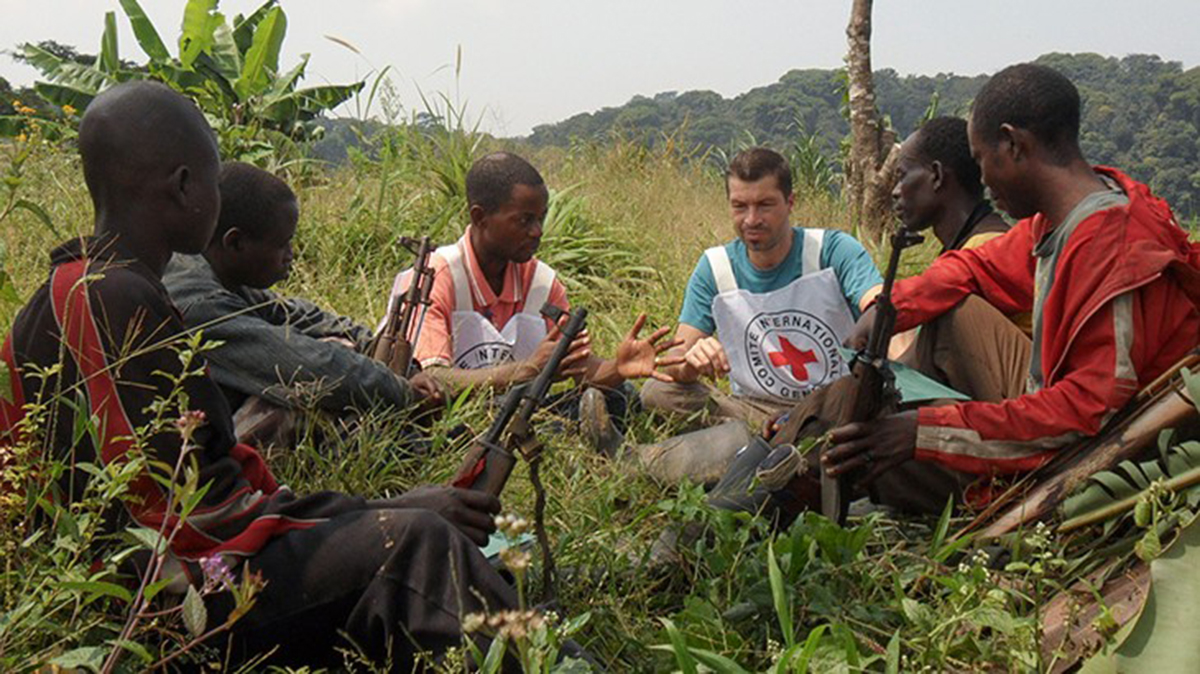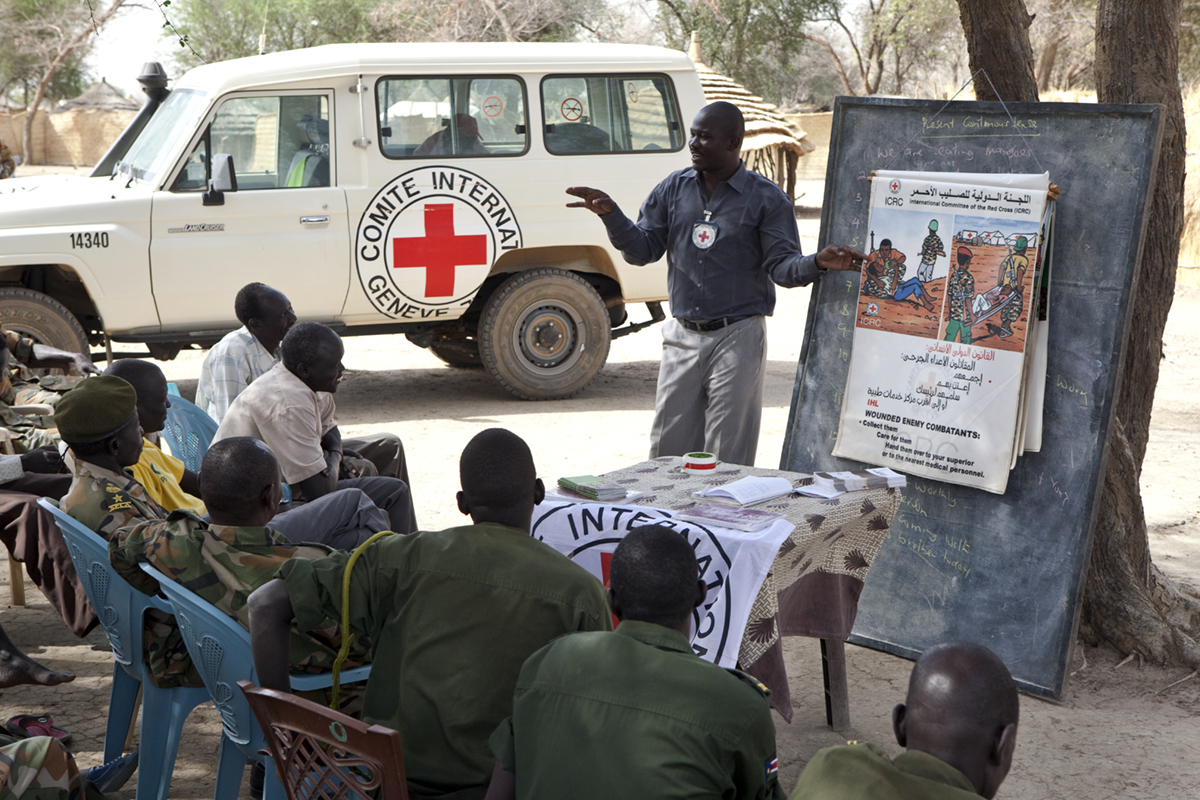Reading time 9 minuten

Neutrality
Neutrality is one of our seven fundamental principles. The Red Cross impartially takes care of every human being, regardless of religion, nationality, race, origin, or political opinion. We do this by not taking sides in conflicts and by always being there for people in a vulnerable position in times of war. Our neutrality is also of great importance in times of peace, because it enables us to offer impartial assistance and to gain access to the most vulnerable in our society.
Reading time 9 minuten
Helping by not taking sides
Neutrality has been a core value of the Red Cross since its inception. After seeing the battlefield in Solferino in 1859, Henry Dunant called on the local population to help the wounded and sick as quickly as possible. In doing so, he stressed the need to help victims from both sides of the conflict. His words: “We are all brothers”.
Dunant wrote a book about his experiences in Solferino, in which he also shared his ideas about establishing a neutral organization to help the victims of war. After this, he toured Europe to promote his ideas, which led to the founding of the Red Cross in 1863.
The name and emblem of the Red Cross are derived from the Swiss flag: a white cross on a red background. Switzerland was always neutral in international conflicts. However, Dunant reversed the colors and so the emblem of our organization became a red cross on a white background. Since then, all over the world this symbol means: don't shoot.
Geneva conventions
In addition to founding the Red Cross, Dunant dedicated himself to international agreements on warfare in order to protect victims. The first convention was signed in Geneva in 1864. "This First Geneva Convention was drawn up to improve the fate of wounded and sick warriors on land," says Tessa Beeloo, National Coordinator of Humanitarian Warfare Law. Later, three more conventions were added."
These four conventions have been signed by almost every country in the world since 1949, making them one of the few conventions that has been universally accepted. The Geneva Conventions form the basis of the humanitarian law of war. These conventions serve to protect different groups of people during armed conflicts. Whether they are military, prisoners of war, or civilians. The conventions were further supplemented by protocols in 1977 and 2005. These focus on the type of conflict. This is because it is important for the law to know who is fighting each other. The third protocol describes the protection and use of the three red emblems: the red cross, the red crescent, and the red crystal. Those three protocols, by the way, have not been signed by all countries.
"Additional rules on the use of various weapons have also been established. The conduct of war continues to evolve; for example, through the use of new technologies for weapons. To keep the humanitarian law of war up to date, international agreements are made about what can and cannot be done or used. For example, agreements on the use of landmines and cluster bombs. Important recent developments are fully autonomous weapon systems, which can attack targets without human intervention, or the use of cyber warfare. This raises difficult ethical and legal questions. It calls for additional rules to protect people in armed conflicts."

Neutral during war
The Red Cross is the guardian of the humanitarian law of war and is committed to it in a variety of ways. "We are woven into the law of war to be able to provide assistance as a neutral party, which is unique! We are not saying the war should not be there; we accept the situation as it is. There must then be a mechanism to protect people and us as aid workers and that is the humanitarian law of war."
To ensure compliance with international agreements, the Red Cross works with other organizations and with countries, but remains independent in making choices. In doing so, neutrality is always strictly guarded. "This is important because in order to provide humanitarian aid, we need access to an area of armed conflict. If the Red Cross speaks out about what the party in power in that area is doing wrong, we can be denied that access."
“Because of our neutrality, we have to be critical”

Disseminating knowledge
In addition to providing humanitarian assistance, the Red Cross has another important role within the humanitarian law of war, which is to disseminate knowledge of the agreements, both among armed forces and civilians. It is important to know what your rights are when you are in a war. Just like we find the Constitution and Human Rights also important to know in peacetime. In the Netherlands, this is done mainly through education. For example, 150 volunteers give guest lectures about the treaties at schools. And military personnel are trained in the principles of the law of war. "Our communication is also important to spread knowledge. For example, we publish editorials in newspapers or try to reach new audiences through social media." Furthermore, there is an official consultation with the government on current issues three times a year, to ensure that the law of war is implemented in Dutch legislation and policy. "We are happy to have a good relationship with the government through this confidential dialogue. This way we can exert influence based on our views and fundamental principles. Our neutrality ensures that we can be critical of the government. And that we can propagate our vision, namely that every human being does not have to suffer unnecessarily and is entitled to respect and dignity, also during armed conflicts."